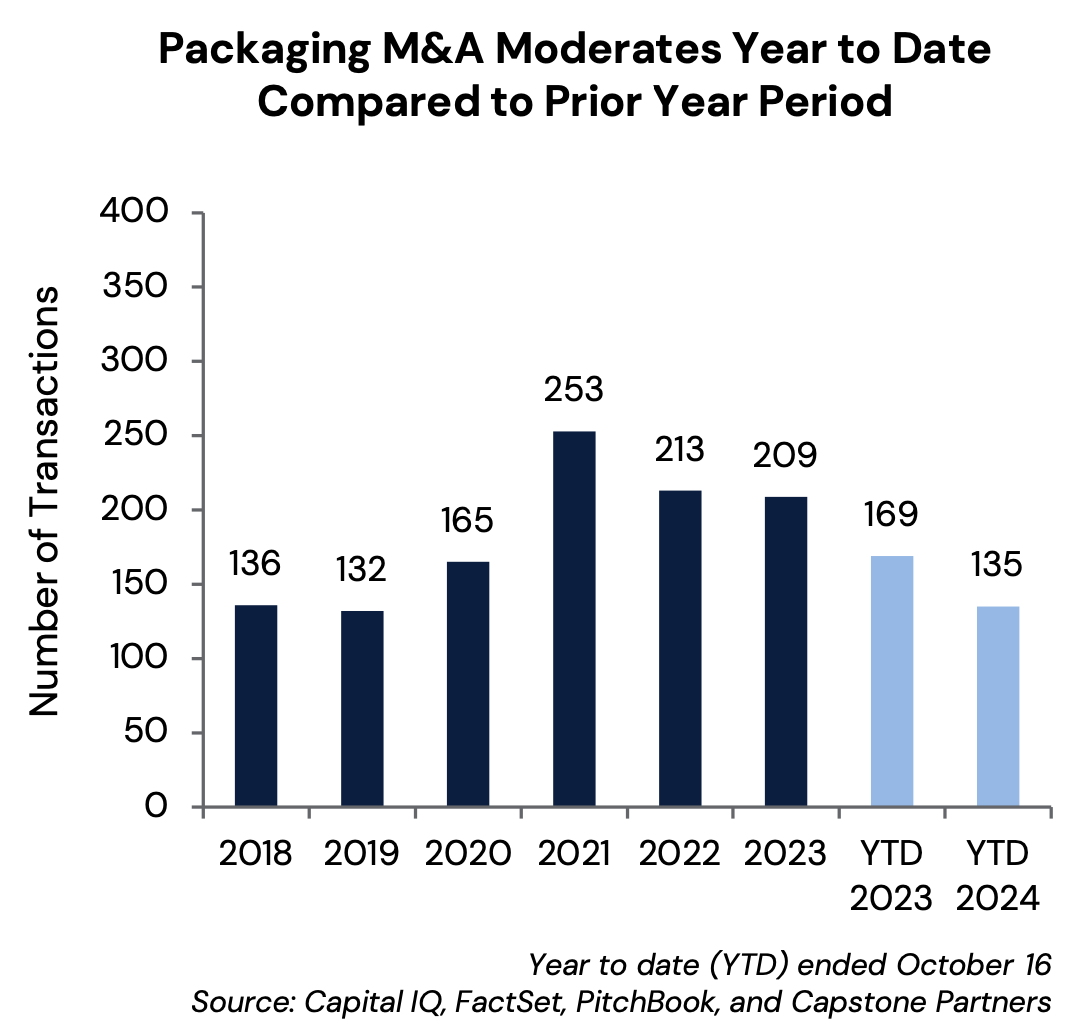
Boston, MA-based Capstone Partners, a leading middle-market investment banking firm, reports in its November 2024 Packaging Industry Update that continued adoption of environmentally sustainable solutions and industry players seeking portfolio optimization have fueled packaging merger & acquisition (M&A) activity to date.
Portfolio realignment transactions have fueled a significant portion of deal activity in early 2024, as public strategic buyers have prioritized transacting with one another and deploying capital inflows, seen by its increased share of deals year-over-year (YOY). By offloading segments that do not align with portfolio optimization strategies, companies have improved their balance sheets and positioned themselves to better meet market demand and regulations.
Extended producer responsibility (EPR) in the packaging sector has become an increasingly important component of sustainability initiatives worldwide. Stakeholders have determined that producers have a responsibility for the treatment and disposal of post-consumer products, and the US government has plans to enforce regulations in 2025. In September, California Attorney General Rob Bonta filed a lawsuit against ExxonMobil for exacerbating global pollution by running a “decades-long campaign of deception” that dramatically overstated the efficacy of plastic recycling, according to a press release. Manufacturers in the packaging market have toggled back and forth with the expectation of managing the end-of-life impact of the packaging materials they produce. This has often involved funding recycling programs, redesigning packaging for greater recyclability, or reducing the amount of packaging used, among other initiatives, with the aim of minimizing what ends up in landfills and as harmful pollution.
Packaging players have also begun adapting production strategies in response to changing trade policies and tariffs. Of note, Canada has aligned its tariff structures with the US for certain goods, and companies have gradually looked toward Mexico as an alternative country for production. Trade agreements, including the US-Mexico-Canada Agreement (USMCA), have provided a favorable option for North American production that avoids trade disruptions and geopolitics stemming from overseas manufacturing. Similar shifts in the packaging market may facilitate more production facilities being moved to or expanded in Mexico, where companies can still cater to the US and Canadian markets while enjoying a more favorable cost structure and avoiding disruptive tariff and trade policy impacts.
“Now that we are past most of the impacts from the COVID-19 pandemic, and the experienced spike in demand for packaging products related to e-commerce activity, the sector has normalized with less destocking activity and pricing stabilization within the commodity input markets. This has led to more confidence from the buyer community when analyzing potential targets for factors such as recent company performance, margin sustainability, and go-forward predictability of revenue and profitability. This confidence, coupled with continued innovation in packaging sustainability and an anticipated increase in overall M&A activity going forward, will lead to strength in packaging M&A and robust interest from private-equity groups and strategic buyers,” says Capstone MD Mike Schumacher.

